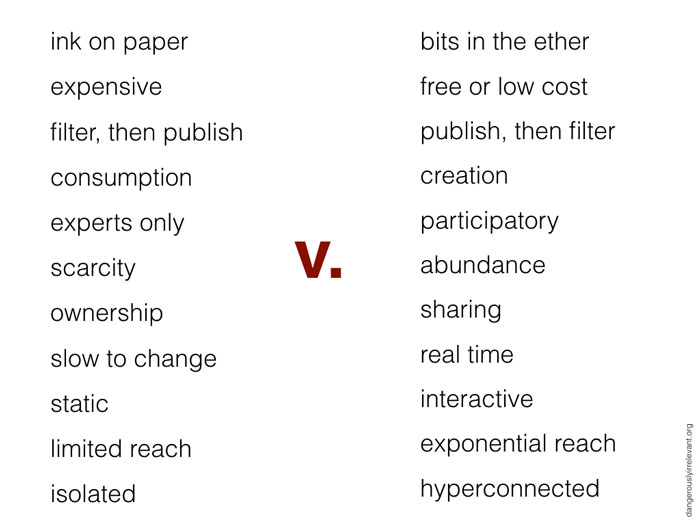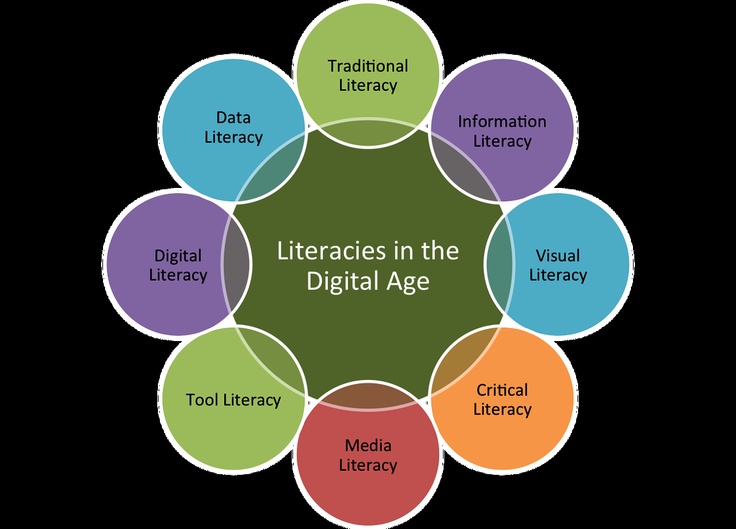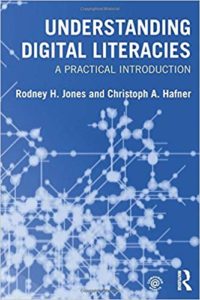I’ve just discovered Dangerously Irrelevant and was impressed to read Scott Mcleod ask: When will we take seriously the challenge of preparing our graduates for our new information landscape? And what are we going to do about all of our graduates?
Our new information landscape is digital bits in the ether instead of ink dots on paper. There is no foreseeable future in which we go back to analog. One of schools’ primary tasks is to help students master the dominant information landscape of their time. Schools are knowledge institutions preparing students to do knowledge work. So let’s be clear about what our new information landscape looks like:

In a followup article, Scott comments:
We spent the last 200+ years (at least) pushing consumption models of learning on most of our students. We asked them to be passive recipients of whatever information came from the teacher or textbook. We gave them few opportunities to question the reliability or validity of the information that we spoon-fed them. We trusted that someone else did the filtering for us and them beforehand. And in many cases, we actually punished kids who dared to ask questions or present alternative viewpoints.
So we shouldn’t be surprised that we now have an information / media literacy problem with our adults. We shouldn’t be surprised that most of our citizens have trouble determining the validity and reliability of digital and online information sources. We shouldn’t be surprised that we are easy prey for those who spread misinformation, deception, and outright lies.
Read the whole article, “Unthoughtful Consumption” on Dangerously Irrelevant.


